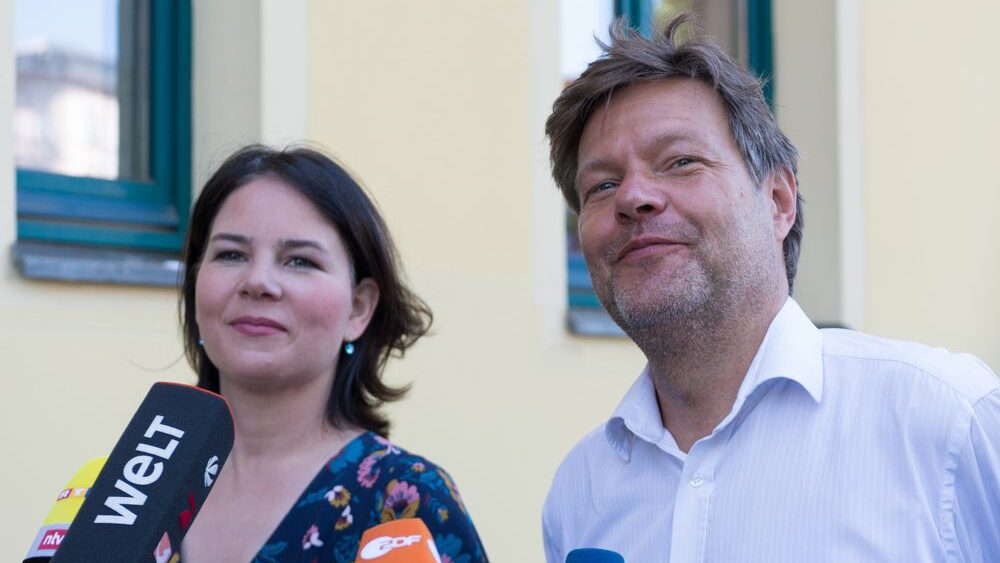
Annalena Baerbock and Robert Habeck
Photo: photocosmos1 / Shutterstock.com
Berlin’s ruling green-Left coalition is finding itself in the midst of a budget crisis after last Wednesday’s verdict by the country’s top constitutional court that ruled against plans to reallocate €60 billion worth of COVID recovery funds into the green transition.
On Monday night, the federal ministry of finance issued a budget freeze on a majority of the German ministries, the only exceptions being the Bundestag, the Bundesrat, the federal Presidency, and the Federal Constitutional Court. The government is hoping to see a clarification from the court this week on whether their decision will impact the pending budget.
After the ruling, the German Court of Auditors issued a statement saying they consider the federal budgets for 2023 and 2023 “extremely problematic from a constitutional point of view.” A financial expert told Der Spiegel that the court ruling would also apply to the Economic Stability Fund (WSF) which the German government since 2022 has filled with loans and used to put the brakes on gas and electricity prices. The Court of Auditors said in a statement that
without significant changes with regard to the requirement of the Federal Constitutional Court, the Federal Audit Office would consider this to be extremely risky under constitutional law.
The decision to utilise unused pandemic cash for green projects was challenged by the centre-right CDU party, with the German government now placed in the awkward position of “having to find the money elsewhere,” in the words of climate minister and Vice Chancellor Robert Habeck.
Habeck had previously warned that a failure to transfer pandemic funds into support for climate schemes could blow a fatal hole in Berlin’s €200 billion green nest egg, with authorities announcing a funding freeze on green projects following the decision by the Federal Constitutional Court.
Since assuming power in 2021, Scholz and his government have ploughed billions of COVID funds into facilitating green initiatives such as home heating pumps and electrifying Germany’s rail network, with Berlin heavily criticised for shutting down its nuclear power plants amid a worsening energy crisis.
Now courts have decided that this fiscal sleight of hand was illegal under German law, contravening strict rules brought in following the 2008 financial crisis, with COVID expenditures only allowed due to the fact that it was a designated emergency.
The so-called traffic light coalition, consisting of the Greens, social democrats, and pro-market FDP, is fighting on all fronts as it defends an energy policy that has been hopelessly ill-prepared for sanctions against Russia amid repeated fears that the nation’s industrial base is collapsing.
The ruling by the constitutional court has already been leapt on by opposition parties in the form of the CDU and populist AfD, with government fears that the fallout of the decision could cascade and impact Germany’s defence and energy expenditures.
The decision has added fuel to the fire of previously existing tensions within the governing coalition, with the liberal FDP hostile to any tax rises to fund the green deficit while the social democrats are against any expenditure cuts.
Some government officials have flown the kite on overriding rules restricting expenditure, with Green minister Robert Habeck declaring that “the German economy will shrink” as a consequence of the decision.
The traffic light coalition had planned to make a decision on the budget in the Budget Committee this Thursday, and planned on it to be passed in the Bundestag on December 1st.
